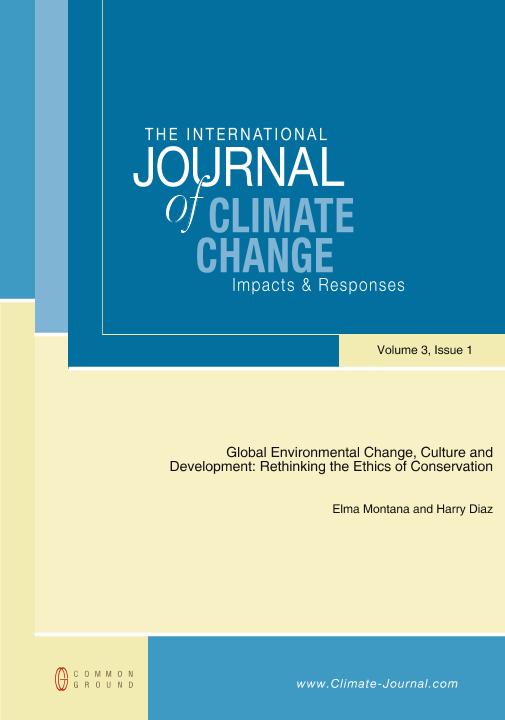Artículo
Global Environmental Change, Culture and Development: Rethinking the Ethics of Conservation
Fecha de publicación:
12/2011
Editorial:
Common Ground Publishing
Revista:
The International Journal of Climate Change: Impacts and Responses
ISSN:
1835-7156
Idioma:
Inglés
Tipo de recurso:
Artículo publicado
Clasificación temática:
Resumen
Expected changes in climate and hydrology in Latin American drylands are likely to affect drinking and irrigation water availability, threatening productive systems and the subsistence of some rural dwellers. Research on the vulnerability of rural communities in watershed basins of Argentina, Bolivia and Chile have shown that drought and diminishing river flows would compromise the wellbeing of the smallest producers of these socio-ecological systems, who are already affected by other stressors, such as globalization, restricted fiscal policies and long established situations of poverty and inequity. Thus, it seems that global environmental change threatens the survival of specific agricultural development models, not those that are more integrated to the agribusiness processes but rather the subordinated, traditional models based on small-scale production and tightly connected to natural cycles. Along with their decline, traditional testimonies and practices related to these models would be lost, including their interpretative schemes and rationales based on values and worldviews different from the prevailing development model. The paper argues that these social and cultural capital losses would entail a drawback in the achievement of development goals?especially for those locally inspired,and that subordinate development models constitute, in themselves, a heritage worth to be preserved. In addition to linking global environmental change to culture loss and to the development processes, the paper suggests the necessity of rethinking the ethics of conservation to promote a new multiculturality paradigm that values small scale productive and lifestyles and understands its connections with nature.
Palabras clave:
Vulnerability
,
Drylands
,
Development Models
,
Conservation
Archivos asociados
Licencia
Identificadores
Colecciones
Articulos(INCIHUSA)
Articulos de INST. DE CS. HUMANAS, SOC. Y AMBIENTALES
Articulos de INST. DE CS. HUMANAS, SOC. Y AMBIENTALES
Citación
Montaña, Elma Carmen; Diaz, Harry Polo; Global Environmental Change, Culture and Development: Rethinking the Ethics of Conservation; Common Ground Publishing; The International Journal of Climate Change: Impacts and Responses; 3; 1; 12-2011; 31-40
Compartir
Altmétricas




